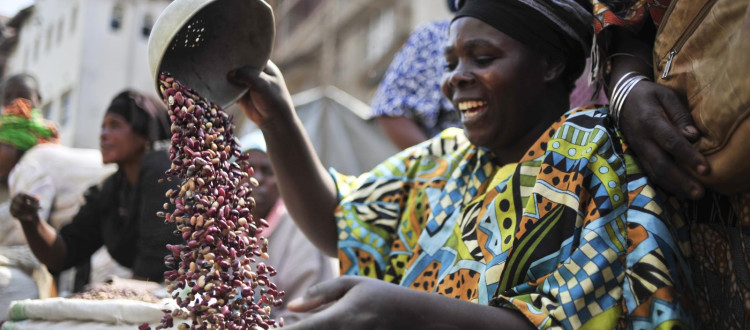it is in
this vein that several stakeholders in the Agricultural sector: Agriculture
ministers, High-level officials of 20 African countries/governments,
Representatives of regional institutions such as the Forum for Agricultural
Research in Africa (FARA)
and sub-regional research organizations (ASARECA,CORAF, and CCARDESSA),
Collaborating partners from CGIAR and other
international research institutions such as AfricaRice, ICARDA, IFPRI, ICIPE, and ILRI, Representatives of private enterprises, Nongovernmental
organizations, Youth agricultural entrepreneurs will all be present at the
International Institute of Tropical Agriculture (IITA), Corporate Farmers International (CFIL) and Alliance for
Green Revolution in Africa (AGRA)’s initiative on youth in agribusiness,
entitled: Engagement of Youth Entrepreneurship for Agricultural Transformation
in Africa at IITA, Ibadan, Nigeria.
This will
lead to the development of an African wide program on “Youth Agribusiness
Development Initiative”:a Private-Public partnership to Advance Youth
employment in
Agriculture and Agribusiness in Africa, which has the main
Objective to:
1. Brainstorm and encourage innovative thinking on how to directly engage the
youth in more diverse and productive roles in agriculture
2. Identify strategies for the empowerment of rural youth in agriculture based
on tailored pathways that offer opportunities in agribusiness, local service
provision, and market-oriented agriculture
3. Develop the Pan-African Youth in Agribusiness program
Key
strategic interventions to realize the workshop’s recommendations include:
1. Establishing the Africa Youth Agribusiness Development Initiative (YADI)
that advances training in vocational agriculture to demonstrate and promote
opportunities for youth.
2. Back stopping (through intensive and modular training programs) rural
enterprise development with quality science and action research to develop
products and technologies that attract the youth.
3. Building a network of well-educated and motivated young entrepreneurs around
rural agribusiness service clusters (hubs)that attract private sector investors
for long-term sustainable development.
4. Mobilizing the energies of skilled youth as service providers to the larger
farming community.
Since the
event is targeted at the Youth, it is expected that:
• Engaging youth in entrepreneurship for agricultural transformation in Africa can succeed by bringing resources to bear on a consistent strategy for the long haul supported by regional policy advocacy and policy leadership spearheaded by IFAD and AfDB agriculture and education sectors.
• Engaging youth in entrepreneurship for agricultural transformation in Africa can succeed by bringing resources to bear on a consistent strategy for the long haul supported by regional policy advocacy and policy leadership spearheaded by IFAD and AfDB agriculture and education sectors.
• The program will aim to increase the income of 1.0 million youth by at least
an additional US$450 every year as a result of training in agribusiness that
allows a doubling of production,processing, and marketing of major stable crops
that include cassava, banana, soybean and horticulture, and livestock(poultry
and fish) over a period of five years in selected impact-zones across the
continent.
https://agropreneurnaija.wordpress.com/2014/05/24/youth-agribusiness-development-initiativea-private-public-partnership-to-advance-youth-employment-in-agriculture-and-agribusiness-in-africa/


